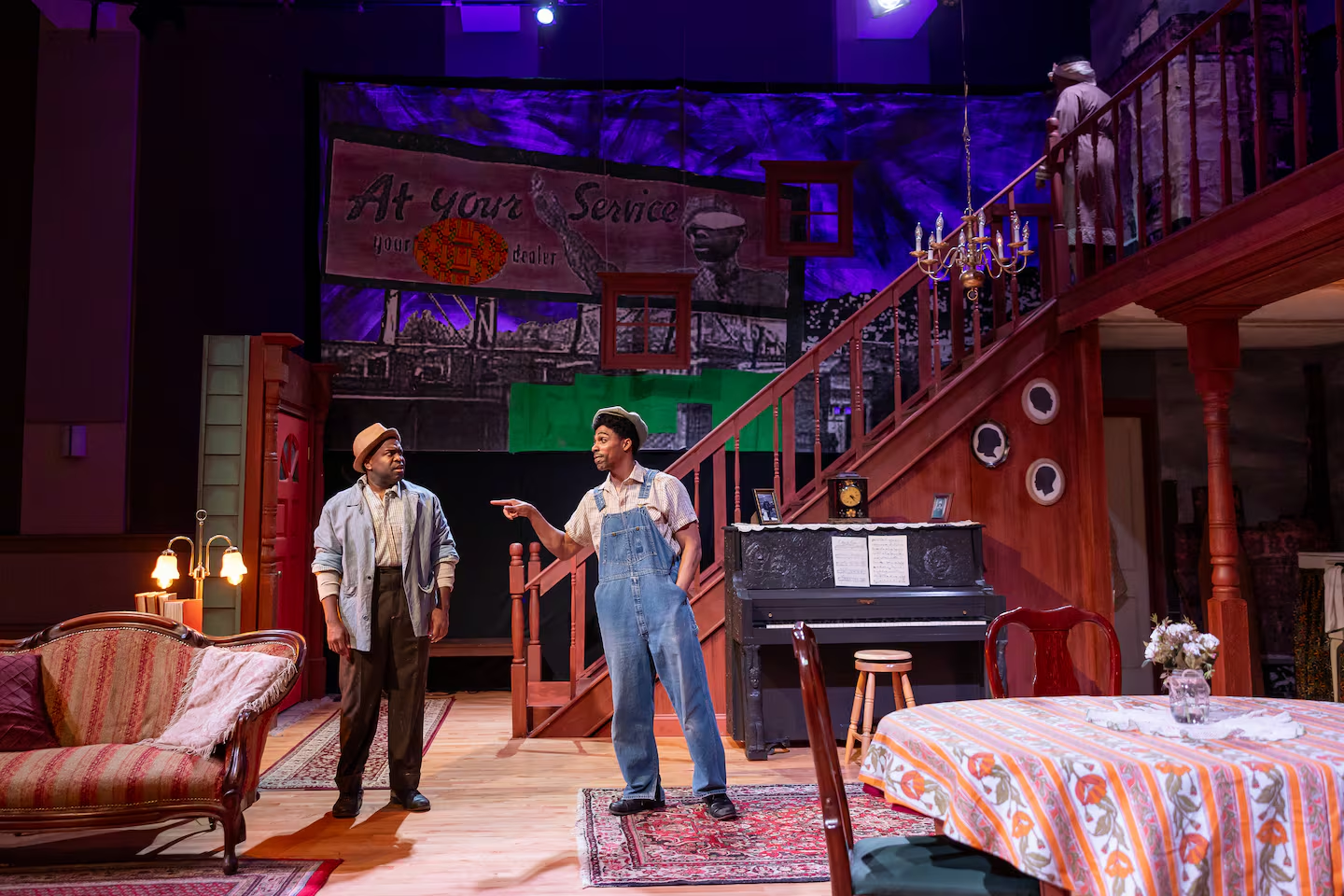Press
On MySouthEnd.com: ‘The Piano Lesson’ Strikes Perfect Notes in Wilson’s Family Discord
02.24.2025

The Piano Lesson, Actors’ Shakespeare Project, performed in partnership with Hibernian Hall, through February 23. 617-241-2200 or ActorsShakespeareProject.org
Actors Shakespeare Project has been artfully orchestrating the masterful music and stagecraft of August Wilson in recent inspired revivals of “Seven Guitars” and “King Hedley II” at Hibernian Hall. Now the auspicious partnership of company and venue continues with a superbly conducted staging—under the sharp direction of Christopher V. Edwards–of the 1987 (1990 Pulitzer Prize) play “The Piano Lesson.” Arguably Wilson’s most disarming yet powerful work, “The Piano Lesson” proves even timelier in an age when revisionism and intensified hatred threaten both the legacy and dreams of many African-Americans.
Set as with all of Wilson’s 20th century play cycle in Pittsburgh, “The Piano Lesson” plays out its dramatic sibling point-counterpoint in the kitchen and parlor of the house—kudos to Jon Savage for a well-detailed design—where uncle Doaker Charles (a railroad cook) lives with his widowed niece Berniece and her 11-year- old daughter Maretha. Right from the start, a kind of human storm erupts as Berniece’s talkative and impulsive brother Boy Willie enters determined to sell watermelons he has brought from Mississippi with his relatively taciturn partner Lymon. Boy Willie also means to sell the family’s strikingly ornate antique piano—carved by an enslaved ancestor—and use the money to buy the land where the family’s ancestors were enslaved. Doaker—who often seems to act as a mediator—reminds Boy Willie constantly that half of the piano belongs to Bernice. For her part, Berniece refuses to sell the piano and sees the unique carvings as a priceless connection to the family’s past.
Throughout the play, the sister-brother stand-off not only represents a kind of familial civil war but also a focal battle between past and future. Wilson artfully weaves the sibling conflict into a rich tapestry of vivid personal stories—some overlapping in their spirit and some very different in their dreams and perceptions. Will the past and future find a meaningful middle ground? Will Maretha discover a true lesson in her own connection with the family piano? Wilson brings the play’s conflicting points of view to an arresting resolution that respects both the lessons of the past and the promise of the future.
In the production playbill, director Edwards asks theatergoers to “let Wilson’s words wash over you like a song you didn’t know you needed to hear,” and the superb ASP ensemble richly renders the play’s compelling dramatic and comic music. Omar Robinson has all of Boy Willie’s unrelenting determination and fire, while Jade Guerra smartly captures Berniece’s understated but adamant demeanor in defending ancestry and memory. Jonathan Kitt makes the most of Doaker’s curious impartiality and the telling train-centered philosophy that Wilson gives him. As fellow sage Wining Boy, “ranney” is a standout in both moments of wisdom and musical rendition. Anthony T. Goss catches Lymon’s adventurousness and his sweet attraction to Berniece. The sequence in which Wining Boy sells Lymon a silk suit and two-tone if tightly fitting shoes is an individual highlight. Daniel Rios Jr. has all of Avery’s expansive feeling for Berniece and his serious if sometimes amusing intensity as a preacher. Ariel Phillips catches Maretha’s innocence, and Brittani J. McBride is properly spirited as impatient date Grace.
Near the end of the play, Avery is called on to do a lot of blessing for the rival siblings. One thing is certain at Hibernian Hall. The fully absorbing ASP staging of “The Piano Lesson” is a blessed rendition of Wilson’s music-rich insights.